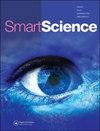Effect of Soiling on the Performance of Solar PV Modules: A Case Study of Aligarh
IF 1.4
Q2 MULTIDISCIPLINARY SCIENCES
引用次数: 2
Abstract
ABSTRACT The world’s future is with renewable energy resources and solar energy which is a clean and sustainable energy resource. Solar PV module is exposed to external environments where dust deposits are a major derogatory factor. The soil and its effect on the performance of the solar module is usually a matter of high concern for the areas of high density and high frequency of low frequency and low-intensity rainfall. Due to the PV module, the effects of dust are examined in relation to various types of dust concentration and spectral transmission. For examination and analysis, experimental investigation is reported in the paper. The investigation shows that dust effects are accumulated, i.e., the performance of the PV module decreases over time with increasing statements, or until it is cleaned manually or through rain. It is also observed that the inclination of the PV installation plays a major role in the quantity of dust deposited on the angle equipment, where the concentration of dust is reduced as a result of higher tilt angles. Aligarh, with its irregular environmental conditions, suffers from high air pollution and minimum rainfall during dry winter. In this study, the impact of dust on the PV module is examined in relation to the dust density of the dust and the meteorological variables for Aligarh, with the purpose to calculate the drop equation describing efficiency loss. Graphical abstract污染对太阳能光伏组件性能的影响:以阿里格尔为例
可再生能源是世界的未来,而太阳能是一种清洁、可持续的能源。太阳能光伏组件暴露在外部环境中,粉尘沉积是一个主要的不利因素。土壤及其对太阳能组件性能的影响通常是高密度和低频率和低强度降雨的高频率地区高度关注的问题。由于采用了PV模块,我们根据不同类型的粉尘浓度和光谱传输来检查粉尘的影响。为了检验和分析,本文报道了实验调查。调查表明,粉尘影响是累积的,即PV组件的性能随着时间的推移随着报表的增加而下降,或者直到手动或通过雨水清洁。还可以观察到,光伏装置的倾角对沉积在角度设备上的粉尘量起主要作用,其中粉尘浓度由于较高的倾斜角而降低。阿里格尔的环境条件不规则,空气污染严重,在干燥的冬季降雨量很少。在本研究中,研究了粉尘对光伏组件的影响与粉尘的粉尘密度和阿里格尔的气象变量的关系,目的是计算描述效率损失的下降方程。图形抽象
本文章由计算机程序翻译,如有差异,请以英文原文为准。
求助全文
约1分钟内获得全文
求助全文
来源期刊

Smart Science
Engineering-Engineering (all)
CiteScore
4.70
自引率
4.30%
发文量
21
期刊介绍:
Smart Science (ISSN 2308-0477) is an international, peer-reviewed journal that publishes significant original scientific researches, and reviews and analyses of current research and science policy. We welcome submissions of high quality papers from all fields of science and from any source. Articles of an interdisciplinary nature are particularly welcomed. Smart Science aims to be among the top multidisciplinary journals covering a broad spectrum of smart topics in the fields of materials science, chemistry, physics, engineering, medicine, and biology. Smart Science is currently focusing on the topics of Smart Manufacturing (CPS, IoT and AI) for Industry 4.0, Smart Energy and Smart Chemistry and Materials. Other specific research areas covered by the journal include, but are not limited to: 1. Smart Science in the Future 2. Smart Manufacturing: -Cyber-Physical System (CPS) -Internet of Things (IoT) and Internet of Brain (IoB) -Artificial Intelligence -Smart Computing -Smart Design/Machine -Smart Sensing -Smart Information and Networks 3. Smart Energy and Thermal/Fluidic Science 4. Smart Chemistry and Materials
 求助内容:
求助内容: 应助结果提醒方式:
应助结果提醒方式:


